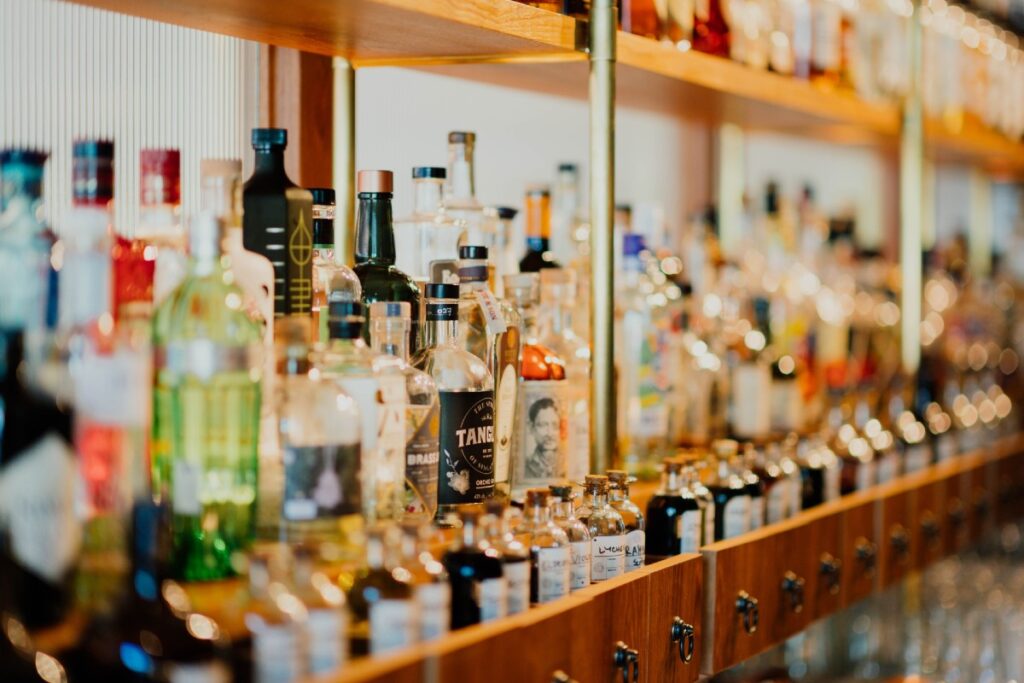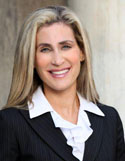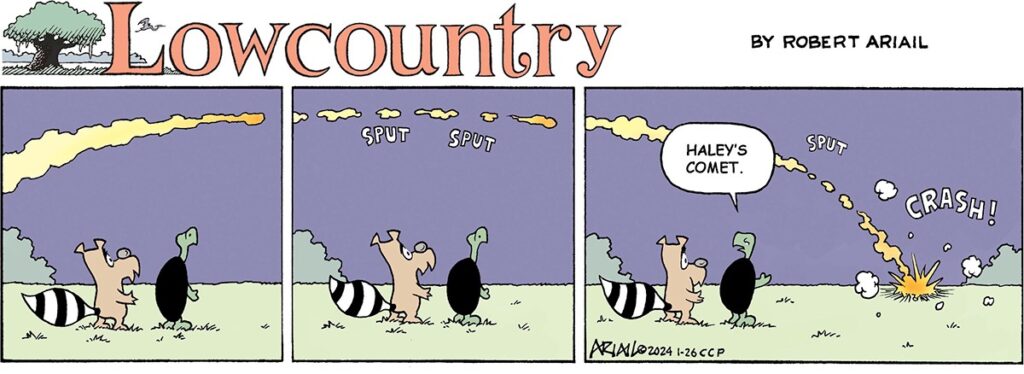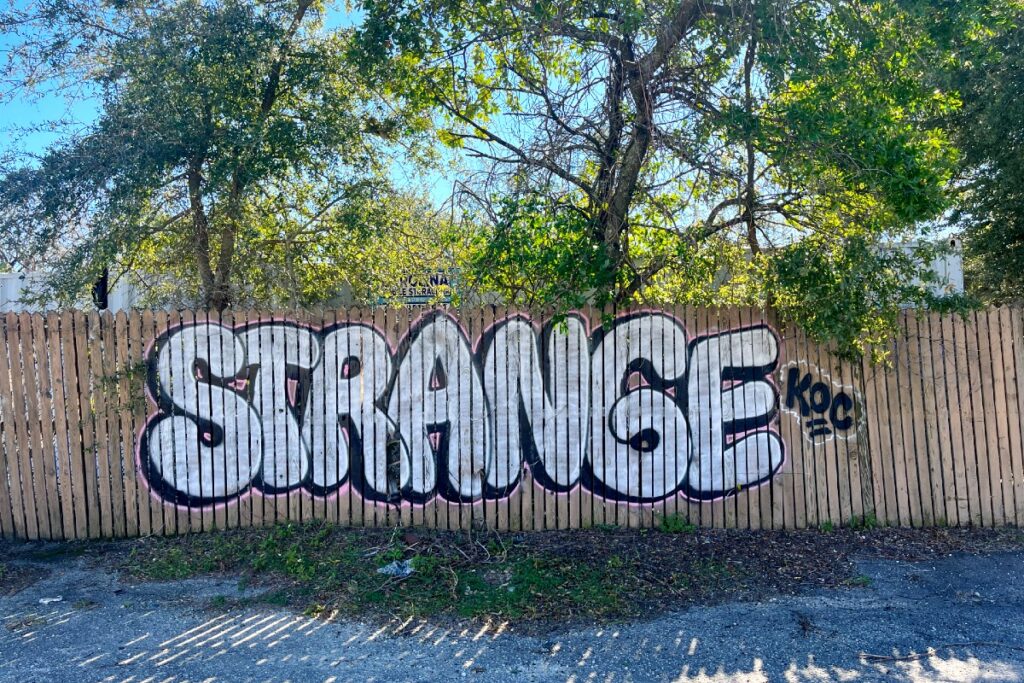STATEHOUSE REPORT | ISSUE 23.04 | Jan. 26, 2024
BIG STORY: Lawmakers consider Sunday liquor bills
MORE NEWS: Former governor to teach at USC law school
LOWCOUNTRY, Ariail: Haley’s comet
COMMENTARY, Brack: Exploring everyday costs in South Carolina
SPOTLIGHT: Riley Institute at Furman University
ANOTHER VIEW: Haley should stay in GOP presidential race
MYSTERY PHOTO: Strange
FEEDBACK: Send us your thoughts
Lawmakers consider permitting Sunday liquor sales, curbside delivery

By Lily Levin | Members of the S.C. House may consider loosening two old-time Sunday alcohol restrictions as early as next week. The bills — House Bill 4231, which would permit liquor sales on Sundays, and House Bill 4364, which would allow alcohol delivery and pickup from grocery stores — on Wednesday passed the House Judiciary Committee with bipartisan support.
Both bills now are on the uncontested House calendar. Advocates are optimistic both will advance into the Senate chamber.

S.C. Rep. Beth Bernstein, a Richland County Democrat who is cosponsoring both bills, said the liquor sales bill, dubbed the “Sunday bill,” is primarily about helping businesses. Scott Newitt, co-owner of Firefly Distillery in North Charleston, added the revenue from an extra day of sales would be welcome.
“I’m very interested in opening up, selling bottles on Sundays because of tourism,” and the visitors it brings, he said. But there’s a benefit for state government, too: “If we were open on Sundays, we would generate another $50,000 to $55,000 a year in taxes,” he noted.
Though the Sunday sales bill would allow micro-distilleries to sell spirits on Sundays, it wouldn’t automatically get rid of so-called “blue laws” — the general name for Sunday regulations of certain commercial activities, such as sale of liquor in bottles.
Instead, the bill would allow a referendum, meaning that municipalities could put it up to a vote. Bernstein said such a tool would allow policy flexibility, especially if “some of the more conservative areas of the state are against having liquor sales on Sunday, then they don’t have to do it.”
Out-of-state factors
Repealing blue laws has been a topic for some South Carolina legislators since 2021, when a bill to permit Sunday sales was first proposed. And in recent years, the state has been no stranger to removing alcohol restrictions. Throughout the past decade, the Palmetto State has seen the expansion of mandated hours of operation for breweries and permitted on-site tastings at distilleries, among other things. And it was not that long ago — 2006 — that the state dumped rules requiring bars to use mini bottles to serve liquor to customers
The majority of the public supports loosening alcohol restrictions, according to polling in 2021.
But there’s another element that might be swaying the legislators: out-of-state pressure.
As of 2023, South Carolina was one of only five U.S. states to prohibit hard liquor sales on Sundays. Georgia recently lifted its Sunday ban, which might have consequences for its neighbor.
For example, Newitt added, “We didn’t have a lottery until North Carolina and Georgia and Tennessee had lotteries,” and officials realized how much money was being lost — money spent right across the state lines.
Though some conservatives oppose the measure for religious reasons, a major voice against the bill comes from mom-and-pop liquor stores.
Some in the spirit industry said this might be because liquor shop owners are worried they’d be forced to open on Sundays to remain competitive within the market, even though these stores wouldn’t benefit too heavily from a seventh day.
Curbside pickup and delivery
H.B. 4364, the other bill on the House calendar, allows curbside delivery of beer and wine from the grocery store, a measure Bernstein said Gov. Henry McMaster authorized during the height of Covid.
“It just makes sense that you would continue to have [the same mandate]” today, she added. Bernstein told the City Paper the bill was held up in committee due to some concerns about it increasing “DUIs and things of that nature,” but that there’s no “real evidence to support that assertion.”
According to Krista Hinson, executive director of the S.C. Retail Association, a group strongly in favor of H.B.4364, the bill “would not change when or where alcohol can be sold nor would it change who can purchase it. The bill includes age verification and training requirements to ensure purchases are legal, no matter which method a customer chooses to use to shop.”
Bernstein added that in addition to supporting the proposal for the sake of continuity, it’s an important accessibility measure.
“A lot of people use curbside delivery. It really helps the busy working mom or family who uses that service frequently,” she said, highlighting the inconvenience of having to take, say, the kids into the supermarket only to buy alcohol.
But though this legislation has bipartisan backing, Hinton said she isn’t certain it will pass in the state Senate.
“Senate rules make it easier for a single senator to block a bill,” Hinson said, “so additional procedural moves could be required to get to debate in that chamber, even with strong support.”
- Lily Levin recently was a staff writer with the Charleston City Paper. Have a comment? Send to: feedback@statehousereport.com.
Former governor to teach at USC law school

Staff reports | Former S.C. Gov. David Beasley will join the faculty at the University of South Carolina’s Rice School of Law as a distinguished professor of practice and public service, the university announced this week.
Beasley, governor from 1995 to 1999, served as executive director of the world’s largest humanitarian organization, the U.N. World Food Program, from 2017 to 2023. The organization, which feeds millions of starving people in 80 countries, received the Nobel Peace Prize in 2020. Beasley accepted it on behalf of the organization.
Beasley, who is from Darlington County, received a bachelor’s degree from USC in 1979. Four years later while serving in the state legislature, he earned a law degree from the school.
“Little did I know the challenges and adventures I was being prepared for in law school,” he said in a statement. “But the way the University of South Carolina law school taught me to think and act with integrity was very important to it all. To now have a chance to give back to a new generation of future leaders is one of the great opportunities of my life.”
“The rule of law is the cornerstone of human freedom and progress,” Beasley said. “I’m thrilled to be engaged in making better lawyers, better law and freer societies wherever our students go.”
Also in recent headlines:
![]() Combative Haley says she’ll stay in presidential battle. Former S.C. Gov. Nikki Haley, combative in a Wednesday rally in North Charleston following her 11-point Tuesday loss in the Republican primary in New Hampshire, said she would continue to fight for the GOP presidential nomination. Former President Donald Trump was ahead by as much as 30 points in South Carolina earlier this month, according to Decision Desk HQ/ The Hill GOP primary polling averages. He also has nearly all of the state’s male Republican leadership behind him. Still, Haley insisted she would stay in the race through the state’s Feb. 24 primary and beyond. “The political elites in this state and in this country have said that we just need to let Donald Trump have this,” Haley said. “We’ve only had two states that voted. We’ve got 48 more.”
Combative Haley says she’ll stay in presidential battle. Former S.C. Gov. Nikki Haley, combative in a Wednesday rally in North Charleston following her 11-point Tuesday loss in the Republican primary in New Hampshire, said she would continue to fight for the GOP presidential nomination. Former President Donald Trump was ahead by as much as 30 points in South Carolina earlier this month, according to Decision Desk HQ/ The Hill GOP primary polling averages. He also has nearly all of the state’s male Republican leadership behind him. Still, Haley insisted she would stay in the race through the state’s Feb. 24 primary and beyond. “The political elites in this state and in this country have said that we just need to let Donald Trump have this,” Haley said. “We’ve only had two states that voted. We’ve got 48 more.”
McMaster blasts labor unions in annual address. S.C. Gov. Henry McMaster held his annual State of the State address Wednesday, warning that recent economic growth will be undone if labor organizers make inroads in cornerstone industries across the region. NOTE: South Carolina has the lowest unionization rate in the nation.
LEGISLATION: Bill to remove permit, training mandate for guns up for debate. A fight is back on at the State House over whether South Carolina will loosen up gun restrictions with a proposed bill to enact “permitless carry” or “constitutional carry,” allowing adults to openly carry loaded weapons without needing any training or a permit. Other legislation of note this week:
- State prohibits advertisement of Delta-9 as active food ingredient
- Parents, advocates decry bill banning youth gender-affirming care.
Haley’s comet

Award-winning cartoonist Robert Ariail generally has a biting or funny comment about the great state of South Carolina in his weekly cartoon. This week, he shares an opinion on the presidential campaign of former Gov. Nikki Haley, who lost in the New Hampshire primary this week.
- Love the cartoon? Hate it? What do you think: feedback@statehousereport.com.
Exploring everyday costs in South Carolina

By Andy Brack | It’s not uncommon for folks to mope that the cost of things has soared so much that they don’t know what they’re going to do with themselves.
 But is it true? Apparently the answer is sometimes yes and, in some surprising cases, no.
But is it true? Apparently the answer is sometimes yes and, in some surprising cases, no.
The 17th birthday of a daughter this week led musings about the costs of everyday supplies, such as bread and eggs.
Not surprisingly, coffee, bacon and eggs are more expensive, even when adjusted for inflation:
Back in 2007, they respectively averaged $3.47 a pound, $3.66 a pound and $1.68 a dozen. Adjusted for inflation, all went up.
- Coffee averaged $3.47 a pound in 2007 ($4.64 in 2022 dollars), but by 2022 was $5.89 a pound. It is, however, easy in the tutti-frutti Starbucks generation to find premium coffee that costs $10 or more a bag.
- Bacon rose from $3.66 a pound 17 years ago to $5.61 a pound in 2022 dollars. A recent Food Lion special had a brand name for $3.49 a pound.
- Eggs went from $1.68 a dozen in 2007 and remained fairly stable for years at about $2 per dozen, until the pandemic when they approached an average cost of $4.50 per dozen a year ago. According to NerdWallet, eggs are now around $2.50 a dozen, which is about what they were 17 years ago when adjusted for inflation.
- Similarly, the real price of milk has been fairly steady. Seventeen years ago, it was $3.50 a gallon, which is $4.34 per gallon when adjusted for inflation. That’s exactly the national average cost per gallon in December, according to the U.S. Department of Agriculture.
And look at another cost that people constantly lament – gasoline. It was 2.85 per gallon on average in 2008. Adjusted for inflation, that would be $3.73 per gallon. But today’s cost at the pump? $2.79 per gallon, according to GasBuddy. That’s lower than it was when George W. Bush was still president.
Regardless of the comparatively good news that real prices haven’t skyrocketed, they are undercut by a couple of things.
First, real wages for everyday workers haven’t gone up comparatively in the United States. In South Carolina, the median household income for a family of four was $61,770, according to Federal Reserve figures. But a living wage for that same family would be about 50% more – $$90,604 per year. Meanwhile CEO salaries have skyrocketed.
Second, the cost of housing is a mess. The average cost of a new house in 2007 was about $250,000. These days, without land, the national cost is $330,000 – and in places like Charleston and other metro areas, that would be low. The median sales price in S.C. now is $363,700, according to RedFin.
Third, the cost of health care has skyrocketed. Even with Obamacare for many, costs are high and unaffordable for many more. U.S. health care spending at $12,555 per person per year is about twice that of other wealthy countries.
So with costs on all but a few staples, like milk and gas, being higher, what can be done at the policy level?
First, it wouldn’t hurt for state lawmakers to pass a $15 per hour minimum wage. South Carolina, one of five states without a minimum wage, follows the $7.25 per hour federal standard. Doing more for minimum wage workers would help in a big way and studies have shown it won’t put businesses out of business. (Look at how many fast food joints now pay $15 an hour because they can’t get the help otherwise.)
Second, state lawmakers should expand Medicaid eligibility, which they stubbornly have refused to open up for more than 300,000 South Carolinians because of the word “Obama” in Obamacare.
Andy Brack is editor and publisher of Statehouse Report and the Charleston City Paper. Have a comment? Send to: feedback@statehousereport.com.
Riley Institute at Furman University
 The public spiritedness of our underwriters allows us to bring Statehouse Report to you at no cost. This week’s spotlighted underwriter is Furman University’s Riley Institute, which broadens student and community perspectives about issues critical to South Carolina’s progress. It builds and engages present and future leaders, creates and shares data-supported information about the state’s core challenges, and links the leadership body to sustainable solutions.
The public spiritedness of our underwriters allows us to bring Statehouse Report to you at no cost. This week’s spotlighted underwriter is Furman University’s Riley Institute, which broadens student and community perspectives about issues critical to South Carolina’s progress. It builds and engages present and future leaders, creates and shares data-supported information about the state’s core challenges, and links the leadership body to sustainable solutions.
Launched in 1999, the Institute is named for former South Carolina Governor and former United States Secretary of Education Richard W. (Dick) Riley. It is committed to nonpartisanship in all it does and to a rhetoric-free, facts-based approach to change.
- Learn more about the Riley Institute.
- Also learn more about the Riley Institute’s Center for Education Policy and Leadership.
Haley should stay in GOP presidential race

Republished from the Charleston City Paper | The big winner in Tuesday’s New Hampshire Republican primary in all reality was former S.C. Gov. Nikki Haley. Former President Donald Trump might have gotten the majority of the votes, but Haley came out ahead to the country.
Haley, who was the last Republican candidate standing after 10 men dropped out of the race, nabbed just over 43% of the vote, compared to the former president’s 54%. For much of the night’s early returns, it looked even closer, surely sending a scare into Trump’s MAGA army.
What this all means is that more than 40% of Republican voters in New Hampshire — and about the same percentage in Iowa’s caucuses the week before — picked a presidential candidate other than Trump to be the GOP nominee. That shows real and palpable weakness for the former president, not strength.
That’s why we urge Haley, known for her tenacity and ambition, to stay the course and resist what must be an enormous amount of political, emotional and institutional pressure to drop out of the race. There are three major reasons she should do this.
First, politics is a game of winning friends, not making enemies. Trump is great at the latter by mocking people, giving them racist or denigrating nicknames and more. Just think about how many American voters of Indian descent are turning away now that he’s given a negative nickname to Nikki. Given enough time with his massive personality issues related to vengeance and narcissism — and most recently of confusing people — he seems to be slowly imploding. Haley, on the other hand, has been winning friends, particularly as she has started to be more critical of Trump. She has momentum. She should trust her instincts and keep going like the little engine that could.
Second, the four criminal cases against Trump, who is facing 91 indictments in various courts, seem to be moving forward, causing him increasing pressure. If he’s convicted of even one count in the months ahead, he becomes a “convicted criminal,” a status that will lead longtime Republicans to flee in droves, as they’ve said in poll after poll. Lesson for Haley: Stay in the game because the party might come running to you to be its nominee.
Third, Americans are waking up to the reality they’ve always known — that Trump is in the race for personal reasons: To be not seen as a loser and to get retribution. Haley, however, is in it for the right reasons, even though we often don’t agree with her on political issues. She wants to help Americans make progress, just like incumbent Joe Biden does.
In politics, timing is everything. We bet Haley would have even gotten closer in New Hampshire had she opened her political guns on Trump a week earlier. Recent criticism seems to have dented his armor and enhanced his rage. By staying the course and competing in many more primaries, Haley will help many Americans break through the brain fog they’ve got about Trump.
The 2024 presidential election needs to be about America, not a bully’s dream to not look like the loser he is. Congratulations, governor. Now get to work.
Strange

This truly is a strange photo. It may be so odd and obscure that no one is able to identify it. But let’s see. (It is located somewhere in South Carolina.) So send us your guess of where this photo is – as well as your name and hometown – to feedback@statehousereport.com.
 Last week’s mystery photo, “Storage,” shows an old plantation house with two phone-booth-sized appendages off the back porch. The house was at Pond Bluff Plantation near Eutawville. But it’s no more after being intentionally burned in 1939 in preparation for flooding connected to the Santee Cooper lakes project, said Jay Altman of Columbia.
Last week’s mystery photo, “Storage,” shows an old plantation house with two phone-booth-sized appendages off the back porch. The house was at Pond Bluff Plantation near Eutawville. But it’s no more after being intentionally burned in 1939 in preparation for flooding connected to the Santee Cooper lakes project, said Jay Altman of Columbia.
The real mystery is what the two shed-like structures were. They likely weren’t outhouses, because for sanitary reasons, they wouldn’t have been located that close to any house. And they might not have been sheds, as tools often were kept in barns. But they could have been some kind of cold food storage area or a place to keep wood or coal. One reader joked it was a good place for moonshine. Another suggested one side could have served as a pumphouse.
Also identifying the house were David Lupo of Mount Pleasant; Elizabeth Jones of Columbia; George Graf of Palmyra, Va.; Allan Peel of San Antonio, Texas; Don Clark of Hartsville; and Pat Keadle of Wagener.
- Send us a mystery picture. If you have a photo that you believe will stump readers, send it along (but make sure to tell us what it is because it may stump us too!) Send to: feedback@statehousereport.com and mark it as a photo submission. Thanks.
Send us your thoughts
We encourage you to send in your thoughts about policy and politics impacting South Carolina. We’ve gotten some letters in the last few weeks – some positive, others nasty. We print non-defamatory comments, but unless you provide your contact information – name and hometown, plus a phone number used only by us for verification – we can’t publish your thoughts.
- Have a comment? Send your letters or comments to: feedback@statehousereport.com. Make sure to provide your contact details (name, hometown and phone number for verification. Letters are limited to 150 words.
- ORDER NOW: Copies are in Lowcountry-area bookstores now, but if you can’t swing by, you can order a copy online today.
- Now available as an e-book!
ABOUT STATEHOUSE REPORT
Statehouse Report, founded in 2001 as a weekly legislative forecast that informs readers about what is going to happen in South Carolina politics and policy, is provided to you at no charge every Friday.
- Editor and publisher: Andy Brack, 843.670.3996
Donate today
We’re proud to offer Statehouse Report for free. For more than a dozen years, we’ve been the go-to place for insightful independent policy and political news and views in the Palmetto State. And we love it as much as you do.
But now, we can use your help. If you’ve been thinking of contributing to Statehouse Report over the years, now would be a great time to contribute as we deal with the crisis. In advance, thank you.
Buy the book
Now you can get a copy of editor and publisher Andy Brack’s We Can Do Better, South Carolina! ($14.99) as a paperback or as a Kindle book ($7.99). . The book of essays offers incisive commentaries by editor and publisher Andy Brack on the American South, the common good, vexing problems for the Palmetto State and interesting South Carolina leaders.
More
- Mailing address: Send inquiries by mail to: P.O. Box 21942, Charleston, SC 29413
- Subscriptions are free: Click to subscribe.
- We hope you’ll keep receiving the great news and information from Statehouse Report, but if you need to unsubscribe, go to the bottom of the weekly email issue and follow the instructions.
- Read our sister publication: Charleston City Paper (every Friday in print; Every day online)
- © 2024, Statehouse Report, a publication of City Paper Publishing, LLC. All rights reserved.














 We Can Do Better, South Carolina!
We Can Do Better, South Carolina!